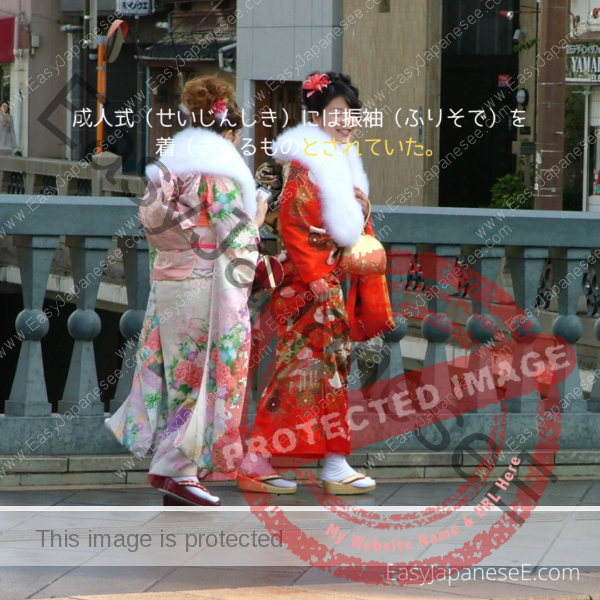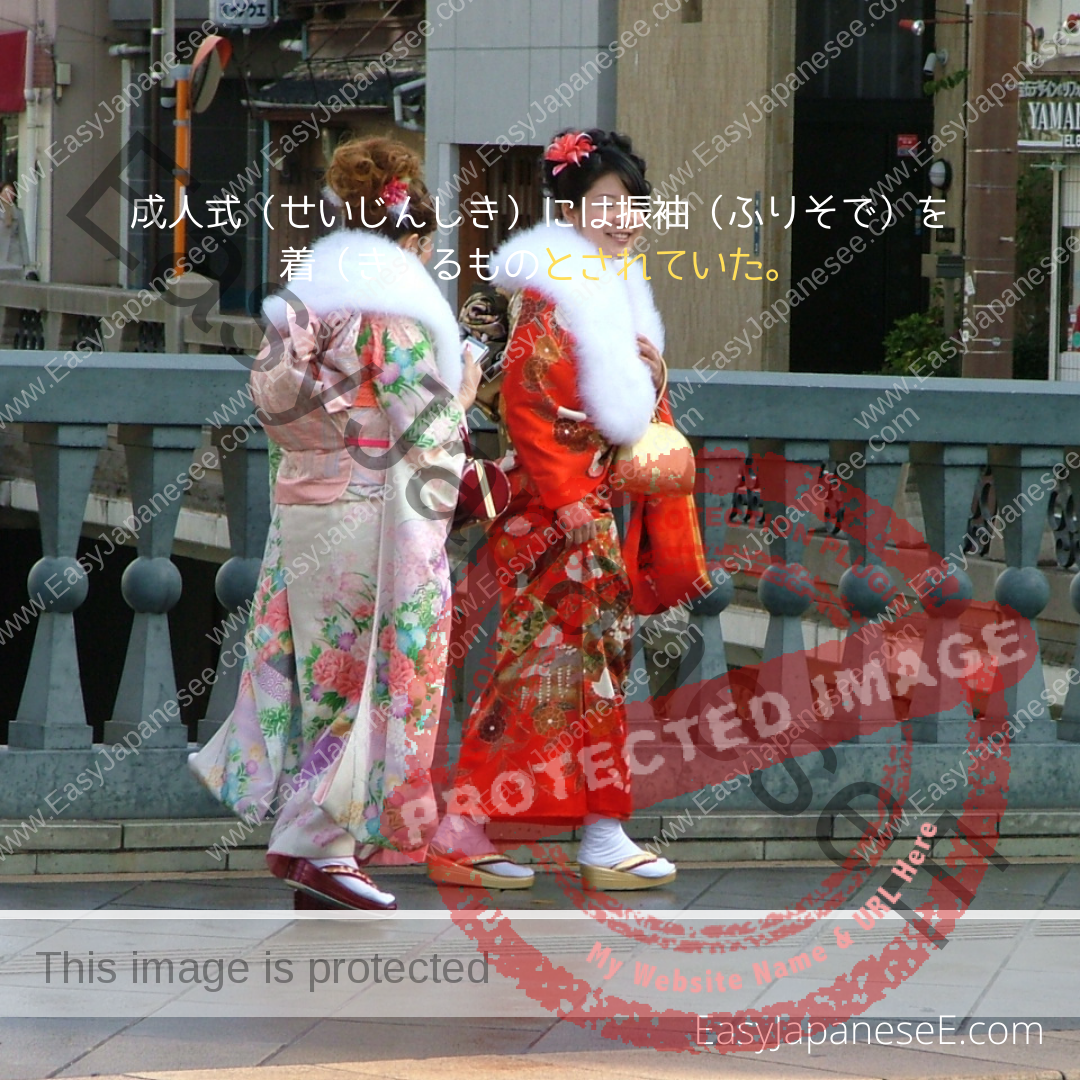
Today’s Grammar Point: ~とされている
~とされている is very similar to ~といわれている, which is used to describe a commonly accepted idea: “It is said to be ~” or “they say ~.”
~とされている can also be used for well-accepted customs and traditions and it implies “~ has always been done this way and that will continue in the same way.”
Connection
- [plain form verb (past or non-past)] とされている
- [いadj stem] い/かった とされている
- [なadj] (だ)/だった とされている
- [noun] (だ)/だった とされている
Examples
このワクチンは安全だとされている。
This vaccine is said to be safe.野菜は健康に良いとされている。
Vegetables are said to be good for your health.クジラはオキアミを食べるとされている。
Whales are said to eat krill.コアラはユーカリの葉しか食べないとされている。
It is said koalas eat only gum leaves.昔、相撲は宗教行事とされていた。
In the olden days, sumo was considered to be a religious event.この会合はいつもこの時期とされている。
This meeting is always at this time of the year (and that will continue).
Cf, この会合はいつもこの時期にひらかれる。
This meeting is always held at this time of the year (just stating the fact).成人式には女性は振袖を着るものとされていた。(Today’ Caption)
Girls were supposed to wear furisode at the coming-of-age ceremony.土用の丑の日にはウナギを食べるものとされている。
Eels are supposed to be eaten on the midsummer day of the Ox.ひらがなは女性の文字とされていた。
Hiragana was considered to be letters written by women.負けても礼をすることが潔いとされている。
It is considered graceful to bow even if you lose.
If you liked this post, please share it with your friends via your social media accounts. Your support will be appreciated!
For more JLPT N3 grammar items, please visit my JLPT N3 Grammar page.

